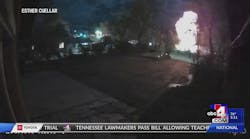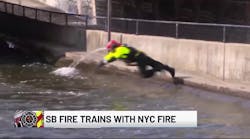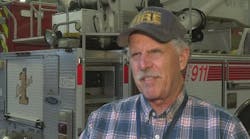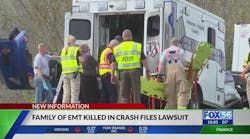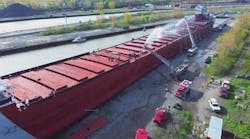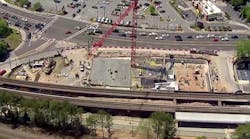This column continues the report, which began in my February column, of my research findings and observations about the future of America's volunteer firefighters. The focus this month is on what we can do together to prevent the decline and fall of the volunteer fire service.
One finding that pleased me is that the majority of those I interviewed are of a very people-oriented nature. The qualitative findings from the survey told me that the responses to my interview questions were being made by people within whom the need to take care of their organizational members was a primary concern. You can say that people who care about people suggested to me some really good solutions for dealing with people.
So what then are my recommendations to you? Please stay with me, as the list of recommendations is quite long. In fact, I can already hear the "We've never done it that way" warriors tuning up. But here it goes anyway.
The data as generated by my triangulated study of the literature, the lived experiences of the phenomenological study participants and their responses to the Multifactor Leadership Questionnaire provided direction to me for the creation of solutions to the identified research problems. The following recommendations are presented within the context of the five overall classifications created to analyze the data from within the phenomenological study. It is my fervent belief that they hold the key to success in the future for our volunteer fire service.
Leadership Issues
- Given the number of responses that indicated that study participants had encountered poor leaders, it is recommended that a method of providing leadership training be made available to every individual seeking a leadership role in a volunteer fire organization. This method could take the form of an officer candidate program designed to prepare people for leadership roles.
Economic Issues
- It is recommended that an employment-opportunities network be established within the volunteer fire organization. This can be done formally or informally.
Interpersonal Issues
- Conflict between individuals is an accepted part of society. This needs to be recognized by volunteer fire organizations. For these reasons, an appropriate counseling program should be developed within each volunteer fire organization.
Personal Issues
- Mentoring systems should be developed to pair a veteran member of the organization with each new member.
Organizational Issues
- Every volunteer fire organization should have a functional set of rules and regulations to serve as a guide for the operations undertaken by that group. These should be developed through a consensus process so that every member of the organization has the ability to provide input into their development. They should be reviewed on an annual and as-needed basis.
Let me remind you at this point that the findings of this study are directly related to the individual conditions as they existed within the sample of the selected population. The findings of this study are directly related to the economic conditions as they existed within the region wherein the selected population was location, as well as the lived experiences of the sample within the subject population. Similar findings may or may not be identified in different geographic locations or different societal or economic stratum. However, it is my opinion that the problems I found are the same problems you are finding every day in your world. I am offering a common-sense prescription for survival.
Many of my recommendations will be extremely controversial. After more than 40 years in this emergency service world, I am well aware of that fact. To all of you I say, tough! Get off of your butt and do something.
We may still have time to make a difference in the future of the volunteer fire service. There was probably a time in Rome when strong leaders and enlightened citizens could have made a difference. They did not step up to the plate and take a cut at the fastball of societal change. I am offering you the chance and a way to make a difference.
Harry R. Carter, Ph.D., CFO, MIFireE is a Firehouse contributing editor. A municipal fire protection consultant based in Adelphia, NJ, he is the former president of the International Society of Fire Service Instructors. He is a past chief and active life member of the Adelphia Fire Company. Currently the chairman of the Board of Fire Commissioners for Howell Township District 2, he retired from the Newark, NJ, Fire Department in 1999 as a battalion commander. He also served as chief of training and commander of the Hazardous Materials Response Team. Dr. Carter is secretary of the United States Branch of the Institution of Fire Engineers of Great Britain (MIFireE). You can contact him through at [email protected].